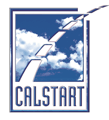Send Clear Signals to Zero-Emission Truck Makers – California’s Time is Now
Today California could vote to adopt the most ambitious zero-emission truck policy in the world.
If the state’s Air Resources Board votes “yes” on the Advanced Clean Truck rule (ACT), it will be sending an unprecedented signal to manufacturers that the Golden State is creating the premier first-mover market for electric and fuel cell trucks in the world. By claiming that crown, California stands to reap a lion’s share of the accompanying economic, jobs, clean air and climate benefits.
Freight trucks and delivery vans, while representing a small share of all vehicles on the road, contribute to a disproportionate fraction of fuel consumption, GHG emissions and air pollution. The rule would take effect in 2024 and would require at least 40 percent of all tractor-trailers sold in California to be zero-emissions by 2035. The rule is tougher for delivery trucks and vans because technology is more ready, with zero-emission sales requirements of 75 percent by 2035. By focusing on those vehicles responsible for a high share of emissions, California will achieve considerable climate and health benefits.
On the economic and jobs front, vehicle and component manufacturers throughout the supply chain as well as infrastructure providers are watching leading-edge advanced vehicle markets closely. When manufacturers are looking to establish a new plant or sales hub (or potentially headquarters), they want to position themselves in their customers’ backyards. And they know their customers will be found in markets that adopt supportive policies encouraging electric vehicle adoption through a mix of financial incentives, policies, infrastructure investments, and pilot projects.
California’s current suite of advanced technology vehicle policies have already attracted substantial interest from EV innovators.
Globally lauded commercial EV startups Rivian, Chanje, Motiv and XOS all manufacture in California. Australian manufacturer SEA Change recently opened a new electric commercial vehicle hub in Torrance. Global EV bus manufacturing leaders BYD and Proterra both have large manufacturing operations in California.
None of this is coincidental.
California’s history of setting forward-looking policies to drive EV adoption as well as the considerable incentives offered to fleets through California’s Hybrid and Zero-Emission Truck and Bus Voucher Incentive Project (HVIP) have catalyzed the market upon which manufacturers rely. Manufacturers know that in the United States, California is already the market to watch when it comes to policies that drive the commercial EV segment.
CALSTART and its Global Commercial Drive to Zero program (Drive to Zero) – an international effort that aims to enable and accelerate the growth of global zero- and near-zero-emission commercial vehicles, support ACT due in large part to the learnings we have gathered from our partners – top commercial vehicle manufacturers, infrastructure providers, and leading-edge fleets in California, nationally, and globally.
To ensure the success of the rule after passing ACT, California should work to create an “ecosystem” of complementary, aligned regulations, incentives and investments. This policy/incentive/investment ecosystem could become a model for other leading regions worldwide to adopt. We suggest championing:
- Fleet purchase requirements that mirror the sales targets in the proposed ACT rule.
- Sustained and sufficient incentives for the up-front costs of zero-emission trucks and the infrastructure essential to fuel these trucks;
- Close coordination with CARB’s sister agencies to support this regulation through sufficient infrastructure investments.
- Coordination with local governments on the development of ZE zones for delivery vehicles.
By passing the ACT rule today, global innovators and the valuable jobs they create will take note that California is setting the pace for zero-emission commercial vehicles.
Cristiano Façanha, Ph.D., is the Global Director of CALSTART’s Global Commercial Vehicle Drive to Zero program. Dr. Façanha is a noted clean bus and truck and policy expert, coalition builder, and a civil and environmental engineer.
